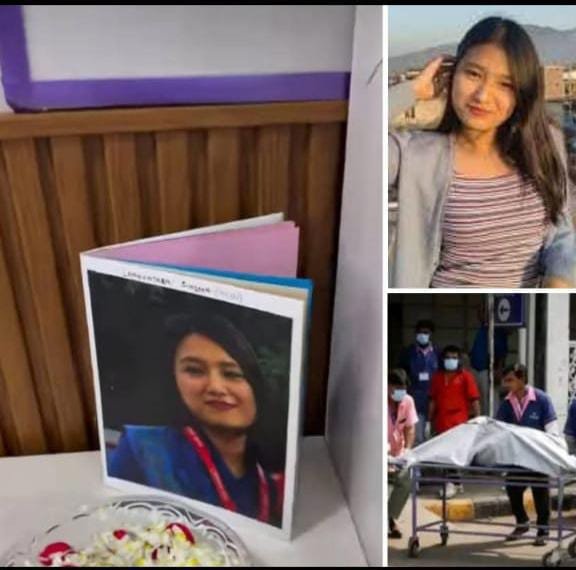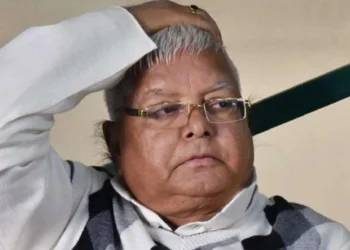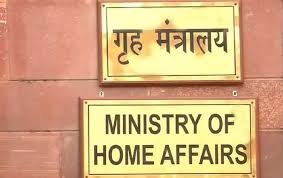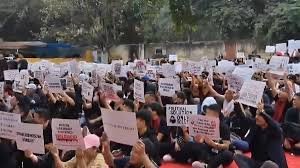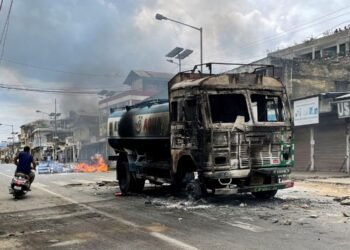Editor’s Note: As part of our commitment to serve as an advocacy platform for peace in Manipur, we continue to welcome “opinion” pieces from all communities. We encourage individuals to use this space to express their perspectives with sincerity and responsibility. We urge contributors to refrain from language that could be interpreted as inciting violence or hatred. In line with this initiative, we present a write-up by HS Benjamin Matep, Chairman of the Kuki Organisation for Human Rights Trust (KOHUR). Please mail your write-up at: novinkn@gmail.com. Thank you, Navin Upadhyay
By H.S. Benjamin Mate
In the early hours of May 3, 2023, Manipur was thrust into one of its darkest chapters. What began as a constitutional protest by tribal groups swiftly became a coordinated ethnic cleansing of the Kuki-Zo community, orchestrated under the watch—or complicity—of a Meitei-dominated Manipur state government, aided by radical valley-based civil society groups like COCOMI. Among the countless families uprooted in this massacre was that of Lamnunthem Singson, a young, ambitious Kuki air hostess, born and raised in the heart of Imphal.
Her story, now tragically cut short by an Air India crash in Ahmedabad, mirrors the collective trauma of her people: displaced, misrepresented, and dishonored—even in death.
A Promising Life in the Heart of Imphal
Lamnunthem Singson belonged to one of the most prominent Kuki families in Imphal, residing in Old Lambulane, a historically Kuki settlement and once a posh colony strategically located within 200 meters of the:
- Manipur Secretariat
- Chief Minister’s Secretariat
- Raj Bhavan
- 1st Manipur Rifles Battalion Headquarters
- Manipur Police Headquarters
READ: Mastermind Behind Kadir’s Killing: Arambai Tenggol Commander Nabbed
Her grandfather, a respected bureaucrat, and her aunt, a Manipur Civil Services officer who was later promoted to the Indian Administrative Service (IAS), were emblems of Kuki excellence in public service. Lamnunthem and her siblings were born and raised in Imphal, went to elite schools, and nurtured dreams no different from any other Indian child. For them, Imphal was not just a city; it was home.
The Night of Betrayal: May 3, 2023
When the violence broke out, Lamnunthem’s family—despite their legacy, proximity to security establishments, and unblemished service to the state—was not spared. Arsonists, mobs, and radicalized youth laid siege to Kuki neighborhoods. Reports confirm the police stood by, and in many cases, state forces were accused of aiding the mobs.
That Old Lambulane, so close to the state’s power centers, could be attacked with impunity is a chilling testament to the pre-meditated nature of the violence. The Singsons had to flee their ancestral home, abandoning everything they owned. Lamnunthem escaped alive, but would carry that trauma with her in every journey henceforth.
From Aspirations to Survival: Why She Became an Air Hostess
In a just society, someone like Lamnunthem Singson might have pursued a white-collar job in administration, education, or public service. But in post-May 3rd Manipur, her family was reduced to internally displaced persons (IDPs), living in a rented house in Kangpokpi, a Kuki-dominated district.
READ: Special Story: Adani Land Deals Spark Tribal Uprising in Assam
With their life uprooted and their dreams on hold, Lamnunthem sought employment as an air hostess—not out of luxury or glamour, but out of necessity, to support her family, regain dignity, and rebuild what the state had destroyed. That she excelled in her field speaks volumes about her resilience.
A Cruel Twist of Fate: Her Death and Its Misappropriation
When Lamnunthem tragically perished in an Air India crash near Ahmedabad, grief spread not just through Kangpokpi, but across every Kuki home that saw in her a daughter, a sister, and a symbol of endurance.
Yet, even in death, she became the subject of propaganda.
The Meitei-controlled state machinery and groups like COCOMI attempted to politicize her death—portraying her as a Manipuri daughter to whitewash the horrors of the ethnic violence that displaced her family. The same government that could not protect her when it mattered, now sought to parade her memory as a token of false unity.
A Mother’s Final Plea: Let Her Rest with Her People
Lamnunthem’s mother and family made a heart-wrenching but defiant decision: her mortal remains would not be taken through Imphal, the city that hunted them, the city that stood silent as their home was burned, their neighbors murdered, and their safety stolen.
Instead, her body was brought via Dimapur, Nagaland, and laid to rest in Kangpokpi, not just as an act of love, but as a statement of refusal—a refusal to let the state erase the truth.
“We will not let her go back to a city that never protected her. She died carrying our pain. Let her rest among her people,” said a grieving relative.
A Symbol of a Displaced Generation
Lamnunthem Singson’s life and death reflect the larger story of the Kuki-Zo people in Manipur:
- Educated and integrated, yet denied dignity and safety.
- Victims of an ethnic pogrom, yet falsely projected as instigators.
- Displaced from ancestral homes, yet defiant in spirit.
Her death is not just a personal tragedy—it is a historical reminder of the state’s failure to protect, failure to acknowledge, and continued attempts to appropriate the narratives of those it has harmed.
Lamnunthem Singson did not die a victim. She lived and died with grace, dignity, and quiet defiance. But her memory must not be used to sanitize the brutal reality of May 3, 2023.
If anything, her death should strengthen the demand for justice—for an international inquiry into the ethnic cleansing, for full recognition of Kuki-Zo as Internally Displaced People, and for the political separation of the valley from the hills, so no child of this land ever has to flee their home under the shadow of their own government.
Let her rest not in the silence of misused remembrance, but in the clarity of truth.



